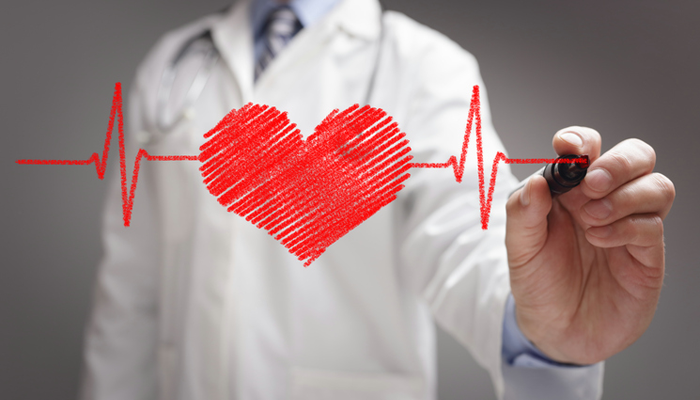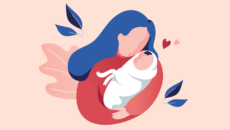As a woman with a congenital heart defect, I have visited many doctors in my life. I knew that my current cardiologist was an adoptive father from family planning conversations we’ve had, and, as I discovered in a recent article in Montana Magazine, my first doctor—a pediatrician who later went on to study and specialize in pediatric cardiology—also adopted his daughter.
The fact that two of the handful of cardiologists I’ve seen seems little more than a minor connection, barely a coincidence, but I’ve come to believe it’s the unexpected connections and relationships that come to build your life story. I see my cardiac condition, formally called transposition of the great arteries, as the seed within me that ultimately yielded my role as the mother of a beautiful four-year-old girl who was surely meant to be my daughter.
Believing Pregnancy Was My Goal
Growing up with a congenital heart defect (CHD), I began discussing the possibility of pregnancy with my doctors in my teens. I was regularly told that a safe pregnancy was entirely possible for someone with my condition, especially given the fact that I had had no complications since my open-heart surgery in 1984. This message remained positive into my twenties, albeit with the caveat that the younger I was when I became pregnant, the better. A pregnancy for a mother with CHD will automatically be classified as high-risk, and being of “advanced maternal age” would only complicate the matter. Yet, as an unmarried graduate student in English literature, I was not looking to become pregnant in my mid-twenties, and the years rolled on.
I was still hearing optimistic messages about pregnancy from my cardiologist as I entered my thirties. By that time, I was married and employed, and moving into a phase of life wherein parenthood seemed possible. However, I found myself facing a new complication: A medication I was taking for flaring symptoms of an autoimmune disease fell into what was formerly called Category-X, the worst of the ratings for pregnancy safety. In this category “the risks involved in use of the drug in pregnant women clearly outweigh potential benefits” according to the FDA. This drug, which was now necessary to my health, was completely contraindicated to having a baby.
It would make sense for my rheumatologists prescribing the Class-X immunosuppressant to be most anxious about pregnancy, but they actually remained open, ready to suggest alternative drugs. Initially, this motivated me to start planning for a biological pregnancy as some sort of ultimate goal: If I could heal my body and get off this toxic medication, then I could have a baby, and all would be well. Bonus points if I could accomplish it before age 35!
A Change in Heart
During my subsequent annual visit with my cardiologist, however, the baby conversation turned to adoption and he offered the idea that “there are many ways to build a family.” He went on to share his own story of adopting a daughter from China. While I had always had positive views of adoption, this turn in the conversation took me by surprise. Suddenly, my cardiac team seemed less confident in my chances at a safe pregnancy. There was no specific reason tied to my health and no direct instructions to avoid pregnancy, just this subtle steering of the conversation toward adoption with a well-placed personal endorsement.
By the next year’s visit, these topics of high-risk pregnancies and adoption were brought up again, with further hints toward the latter. While I might have resisted and continued to pursue a biological pregnancy despite the medical complications, these conversations with my cardiologist had already changed my heart in the metaphorical sense. Within a few months I had fully committed: I was researching adoption, exploring my thoughts in blog posts, and announcing our parenting plans on social media. Two months after that my husband and I attended an information session on becoming foster parents in our county, having decided that private and international adoption were not the routes for us. And last year, on National Adoption Day in November, we finalized the adoption of our daughter, whom we had been fostering for nearly a year.
Now that I have joined the ranks of adoptive parents, alongside two of my cardiologists, I appreciate the unexpected path that brought me here all the more. Certainly, one diagnosis or even one frightening medication may not rule out pregnancy for many women, but I saw these health obstacles as the perfect opportunity to pause and take another course. I could have poured my energy and emotional investment into the right combination of medication, lifestyle changes, and health providers to try for pregnancy. Instead, I chose to channel that energy, and the love my husband and I held in waiting, toward a more direct and fulfilling route to becoming a parent. For me, the defective structure of my physical heart became the invitation to reconsider in my emotional heart why I was pursuing parenthood, and to accept with joy the idea of adoption.



